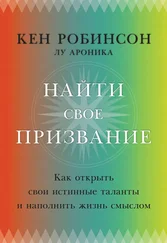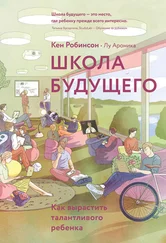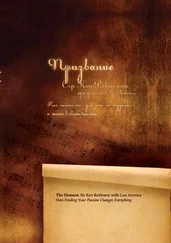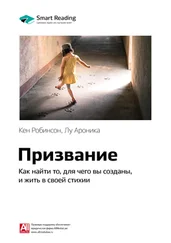Кен Робинсон - The Element
Здесь есть возможность читать онлайн «Кен Робинсон - The Element» весь текст электронной книги совершенно бесплатно (целиком полную версию без сокращений). В некоторых случаях можно слушать аудио, скачать через торрент в формате fb2 и присутствует краткое содержание. Год выпуска: 2009, ISBN: 2009, Издательство: Penguin Books Ltd, Жанр: Самосовершенствование, на английском языке. Описание произведения, (предисловие) а так же отзывы посетителей доступны на портале библиотеки ЛибКат.
- Название:The Element
- Автор:
- Издательство:Penguin Books Ltd
- Жанр:
- Год:2009
- ISBN:9780141911250
- Рейтинг книги:3 / 5. Голосов: 1
-
Избранное:Добавить в избранное
- Отзывы:
-
Ваша оценка:
- 60
- 1
- 2
- 3
- 4
- 5
The Element: краткое содержание, описание и аннотация
Предлагаем к чтению аннотацию, описание, краткое содержание или предисловие (зависит от того, что написал сам автор книги «The Element»). Если вы не нашли необходимую информацию о книге — напишите в комментариях, мы постараемся отыскать её.
The Element — читать онлайн бесплатно полную книгу (весь текст) целиком
Ниже представлен текст книги, разбитый по страницам. Система сохранения места последней прочитанной страницы, позволяет с удобством читать онлайн бесплатно книгу «The Element», без необходимости каждый раз заново искать на чём Вы остановились. Поставьте закладку, и сможете в любой момент перейти на страницу, на которой закончили чтение.
Интервал:
Закладка:
“As a precocious youngster I had always been good at logical manipulations and puzzle‐solving IQ tests. So if economics was made for me, it can be said that I too was made for economics. Never underestimate the vital importance of finding early in life the work that for you is play. This turns possible underachievers into happy warriors.”
Three Stories, One Message
Gillian Lynne, Matt Groening, and Paul Samuelson are three very different people with three very different stories. What unites them is one undeniably powerful message: that each of them found high levels of achievement and personal satisfaction upon discovering the thing that they naturally do well and that also ignites their passions. I call stories like theirs “epiphany stories” because they tend to involve some level of revelation, a way of dividing the world into before and after. These epiphanies utterly changed their lives, giving them direction and purpose and sweeping them up in a way that nothing else had.
They and the other people you’ll meet in this book have identified the sweet spot for themselves. They have discovered their Element—the place where the things you love to do and the things that you are good at come together. The Element is a different way of defining our potential. It manifests itself differently in every person, but the components of the Element are universal.
Lynne, Groening, and Samuelson have accomplished a great deal in their lives. But they are not alone in being capable of that. Why they are special is that they have found what they love to do and they are actually doing it. They have found their Element. In my experience, most people have not.
Finding your Element is essential to your well‐being and ultimate success, and, by implication, to the health of our organizations and the effectiveness of our educational systems.
I believe strongly that if we can each find our Element, we all have the potential for much higher achievement and fulfillment. I don’t mean to say that there’s a dancer, a cartoonist, or a Nobel‐winning economist in each of us. I mean that we all have distinctive talents and passions that can inspire us to achieve far more than we may imagine. Understanding this changes everything. It also offers us our best and perhaps our only promise for genuine and sustainable success in a very uncertain future.
Being in our Element depends on finding our own distinctive talents and passions. Why haven’t most people found this? One of the most important reasons is that most people have a very limited conception of their own natural capacities. This is true in several ways.
The first limitation is in our understanding of the range of our capacities. We are all born with extraordinary powers of imagination, intelligence, feeling, intuition, spirituality, and of physical and sensory awareness. For the most part, we use only a fraction of these powers, and some not at all. Many people have not found their Element because they don’t understand their own powers.
The second limitation is in our understanding of how all of these capacities relate to each other holistically. For the most part, we think that our minds, our bodies, and our feelings and relationships with others operate independent of each other, like separate systems. Many people have not found their Element because they don’t understand their true organic nature.
The third limitation is in our understanding of how much potential we have for growth and change. For the most part, people seem to think that life is linear, that our capacities decline as we grow older, and that opportunities we have missed are gone forever. Many people have not found their Element because they don’t understand their constant potential for renewal.
This limited view of our own capacities can be compounded by our peer groups, by our culture, and by our own expectations of ourselves. A major factor for everyone, though, is education.
One Size Does Not Fit All
Some of the most brilliant, creative people I know did not do well at school. Many of them didn’t really discover what they could do—and who they really were—until they’d left school and recovered from their education.
I was born in Liverpool, England, and in the 1960s I went to a school there, the Liverpool Collegiate. On the other side of the city was the Liverpool Institute. One of the pupils there was Paul McCartney.
Paul spent most of his time at the Liverpool Institute fooling around. Rather than studying intently when he got home, he devoted the majority of his hours out of school to listening to rock music and learning the guitar. This turned out to be a smart choice for him, especially after he met John Lennon at a school fete in another part of the city. They impressed each other and eventually decided to form a band with George Harrison and later Ringo Starr, called the Beatles. That was a very good idea.
By the mid‐1980s, both the Liverpool Collegiate and the Liverpool Institute had closed. The buildings stood empty and derelict. Both have since been revived, in very different ways. Developers turned my old school into luxury apartments—a huge change, since the Collegiate was never about luxury when I was there. The Liverpool Institute has now become the Liverpool Institute for Performing Arts (LIPA), one of Europe’s leading centers for professional training in the arts. The lead patron is Sir Paul McCartney. The old, dusty classrooms where he spent his teenage years daydreaming now contain students from all over the world doing the very thing he dreamed about—making music—as well as those learning to take the stage in a wide variety of ways.
I had a role in the early development of LIPA, and on its tenth anniversary, the directors rewarded me with a Companionship of the school. I went back to Liverpool to receive the award from Sir Paul at the annual commencement. I gave a speech to graduating students about some of the ideas that are now in this book—the need to find your passion and talents, the fact that education often doesn’t help people to do that, and that it often has the opposite effect.
Sir Paul spoke that day as well, and responded directly to what I’d been saying. He said that he’d always loved music, but that he never enjoyed music lessons at school. His teachers thought they could convey an appreciation for music by making kids listen to crackling records of classical compositions. He found this just as boring as he found everything else at school.
He told me he went through his entire education without anyone noticing that he had any musical talent at all. He even applied to join the choir of Liverpool Cathedral and was turned down. They said he wasn’t a good enough singer. Really? How good was that choir? How good can a choir be? Ironically, the very choir that rejected the young McCartney ultimately staged two of his classical pieces.
McCartney is not alone in having his talents overlooked in school. Apparently, organizers kept Elvis Presley from joining his school’s glee club. They said his voice would ruin their sound. Like the choir at the Liverpool Cathedral, the glee club had standards to uphold. We all know the tremendous heights the glee club scaled once they’d managed to keep Elvis out.
A few years ago, I spoke at a number of events on creativity with John Cleese from Monty Python. I asked John about his education. Apparently, he did very well at school but not at comedy, the thing that actually shaped his life. He said that he went all the way from kindergarten to Cambridge and none of his teachers noticed that he had any sense of humor at all. Since then, quite a few people have decided he does.
If these were isolated examples, there’d be little point in mentioning them. But they’re not. Many of the people you’ll meet in this book didn’t do well at school or enjoy being there. Of course, at least as many people do well in their schools and love what the education system has to offer. But too many graduate or leave early, unsure of their real talents and equally unsure of what direction to take next. Too many feel that what they’re good at isn’t valued by schools. Too many think they’re not good at anything.
Читать дальшеИнтервал:
Закладка:
Похожие книги на «The Element»
Представляем Вашему вниманию похожие книги на «The Element» списком для выбора. Мы отобрали схожую по названию и смыслу литературу в надежде предоставить читателям больше вариантов отыскать новые, интересные, ещё непрочитанные произведения.
Обсуждение, отзывы о книге «The Element» и просто собственные мнения читателей. Оставьте ваши комментарии, напишите, что Вы думаете о произведении, его смысле или главных героях. Укажите что конкретно понравилось, а что нет, и почему Вы так считаете.












